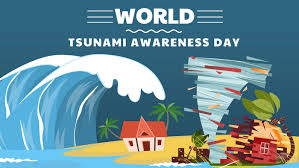RHS ESSENTIAL
If you have a positive attitude towards your exams, you increase your chances of performing well.
Over the next few days, we will investigate strategies to get positive about your exams
#6. Lots of practice
The best way to avoid the fear of the unknown is to do lots of practice with past papers. Practise will make the unknown known.
https://learn.solent.ac.uk/mod/book/view.php?id=2739&chapterid=1205
RHS BIRTHDAYS TODAY
Amanda Mathe (Grade 12)
Ntandoyakhe Mqalu (Grade 8)
Phoebe Rabany (Grade 12)
SATURDAY (5 NOVEMBER 2022) BIRTHDAYS:
Hlonolofatso Diphoko (Grade 12)
Myekeni Dlamini (Grade 10)
Nonhlanhla Garden (Grade 12)
Melissa Marks (Grade 12)
Cynthia Sotomela (Grade 11)
Sylvia Sotomela (Grade 11)
Lilitha Spelman (Grade 9)
Motshidisi Tause (Grade 12)
SUNDAY (6 NOVEMBER 2022) BIRTHDAYS:
Franklin Milimo (Grade 9)
Olwethu Mokgoro (Grade 11)
Sphokazi Sithole (Grade 10)
GRADE 12 NSC FINAL EXAMINATION: Mathematical Literacy Paper 1; Mathematics Paper 1
GRADE 12 NSC POWER SESSIONS: Mathematical Literacy Paper 2; Mathematics Paper 2
GRADE 12 NSC POWER SESSIONS SATURDAY (5/11/22) & SUNDAY (6/11/22): Mathematical Literacy Paper 2; Mathematics Paper 2
GRADE 11 FINAL EXAMINATIONS: Computer Applications & Technology; Music; Dramatic Arts; Design; Music Paper 2
GRADE 10 FINAL EXAMINATIONS: Afrikaans Paper 2
GRADE 9 FINAL EXAMINATIONS: Life Orientation
GRADE 8 FINAL EXAMINATIONS: Technology
TODAY IS WORLD TSUNAMI AWARENESS DAY

World Tsunami Awareness Day makes its debut on the international calendar this November, and disaster experts from around the Indian Ocean have been given an early opportunity to step up and get involved.
Participants in a 14-country tsunami-focused gathering run by UNESCO’s Intergovernmental Oceanographic Commission – which wraps up on Friday with a table-top exercise – welcomed the new global spotlight on reducing the impact of the potentially deadly waves.
“Awareness and response is the big challenge and gap now,” said Mr. Srinivasa Kumar, Head of the National Tsunami Warning Centre at the Indian National Centre for Ocean Information Services.
“World Tsunami Awareness Day is a great opportunity to increase awareness at all levels and among all stakeholders, starting with the public right through to top politicians. Because engaging with all stakeholders is what makes the system sustainable, and when the system is sustainable, that’s when you mitigate losses,” said Mr. Kumar, who is also Chair of the Intergovernmental Coordination System for the Indian Ocean Tsunami Warning and Mitigation System.
In a statement issued during the week-long meeting hosted by the Bureau of Meteorology of his homeland Australia, Mr. Robert Glasser, Special Representative of the UN Secretary-General for Disaster Risk Reduction, underlined the importance of the 5 November World Tsunami Awareness Day celebration.
“Inspired by Japan, it will enhance international awareness of the need for resilience and vigilance in the face of large disaster events whose impacts can be felt across the globe in terms of both loss of life and economic losses. Focus on tsunami risk will help to spur measures to reduce loss of life in response to other hazards including storms, floods and earthquakes," he said.
World Tsunami Awareness Day was the brainchild of Japan, which due to its repeated, bitter experience has over the years built up major expertise in areas such as tsunami early warning, public action and building back better after a disaster to reduce future impacts.
Tsunamis are rare events, but that very fact makes risk understanding vital.
“Awareness is an issue of huge importance. People might live for 50 years without experiencing a tsunami, so the community doesn’t know what to do,” said Mr. Samwel Mbuya, Manager of Forecasting Services at the Tanzania Meteorological Agency.
Critically, tsunamis can also be extremely deadly: in the past 100 years, 58 of them have claimed more than 260,000 lives, or an average of 4,600 per disaster, surpassing any other natural hazard.
The highest number of deaths in that period was in the Indian Ocean tsunami of December 2004. It caused an estimated 227,000 fatalities in 14 countries, with Indonesia, Sri Lanka, India and Thailand hardest-hit. With 9,000 tourists from dozens of other nations among the victims, it was the worst recorded disaster to affect such a broad swathe of the globe.
Just three weeks afterwards, the international community came together in Kobe, in Japan’s Hyogo region. Governments adopted the 10-year Hyogo Framework for Action, the first comprehensive global agreement on disaster risk reduction.
They also created the Indian Ocean Tsunami Warning and Mitigation System, which boasts scores of seismographic and sea-level monitoring stations and disseminates alerts to national tsunami information centres.
The system’s member countries are spending their week in Melbourne looking at ways to improve public understanding and action on alerts, to harmonise standard operating procedures, and prepare September’s regionwide “IOWave16” tsunami exercise.
Rapid urbanization and growing tourism in tsunami-prone regions is putting ever-more people in harm’s way. That make the reduction of risk a key factor if the world is to achieve substantial reductions in disaster mortality – a primary goal of the Sendai Framework, the 15-year international agreement adopted in March last year to succeed the Hyogo Framework.
In December 2015, the UN General Assembly designated 5 November as World Tsunami Awareness Day.
The date for the annual celebration was chosen in honour of the Japanese story of “Inamura-no-hi”, meaning the “burning of the rice sheaves”. During an 1854 earthquake a farmer saw the tide receding, a sign of a looming tsunami. He set fire to his entire harvest to warn villagers, who fled to high ground. Afterwards, he built an embankment and planted trees as a buffer against future waves.
The UN General Assembly called on all countries, international bodies and civil society to observe the day, in order to raise tsunami awareness and share innovative approaches to risk reduction.
The debut World Tsunami Awareness Day focuses on education and evacuation drills.
Tsunamis will also be a major theme of the annual International Day for Disaster Reduction on 13 October, centred on the first of the Sendai Framework’s seven targets: reducing mortality.
RHS